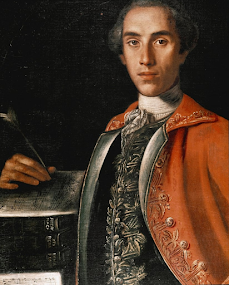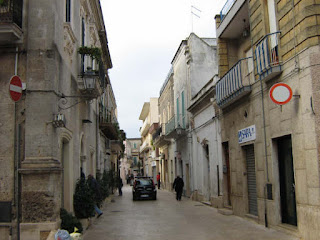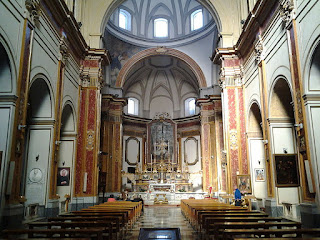Marisa Merlini - actress
Fifties star who turned down Oscar-winning role
The actress Marisa Merlini, whose 60-year movie career was at its peak in the 1950s and early 1960s, was born in Rome on this day in 1923. Although she had built a solid reputation in a string of movies as the foil to the comedic genius of Totó, the role with which Merlini is most often associated is the midwife Annarella in Luigi Comencini’s 1953 romantic comedy Pane, amore e fantasia - Bread, Love and Dreams - which presented an idyllic view of Italian rural life. The movie won a Silver Bear at the Berlin International Film Festival and Merlini’s performance was hailed by both audiences and critics, bringing many offers to play similar characters. Co-star Vittorio De Sica was impressed with Merlini’s acting skills and when he turned to directing he had her earmarked for the part of Cesira, the widowed shopkeeper in La Ciociara, the 1960 wartime drama based on Alberto Moravia’s novel Two Women. It was a chance for Merlini to break free of her comedy typecasting and prove herself as a serious actress. Yet she turned down the role, deciding that at 36 she was not yet ready to play older women. The part instead went to Sophia Loren, whose portrayal of Cesira won her an Oscar for Best Actress. Read more…
_____________________________________
Domenico Modugno – singer and songwriter
Artist who gave us a song that conjures up Italy
Domenico Modugno, who was one of the writers of the iconic Italian song, Volare, died on this day in 1994 in Lampedusa, the island off Sicily. Modugno wrote Volare with Franco Migliacci and performed it in the San Remo music festival in 1958 with Johnny Dorelli. Sometimes referred to as Nel blu dipinto di blu, the song won San Remo and became a hit all over the world. It was the Italian entry in the 1958 Eurovision song contest. It came only third, yet received two Grammy Awards and sold more than 22 million copies. Modugno was born in 1928 at Polignano a Mare near Bari in Apulia. After completing his military service he enrolled in drama school and had a number of parts in films while still studying. The success of Volare proved to be the turning point in his career. He won the San Remo music festival again in 1959 and came second in 1960. He also represented Italy in the Eurovision song contest for a second time in 1959. In 1962 he won San Remo for a third time and represented Italy at Eurovision again in 1966 with his song Dio come ti amo. It was recorded in Italian and also in English as Oh How Much I Love You by other artists. Read more…
______________________________________
Barbara Strozzi – composer
One of few 17th century women to have her own music published
The talented singer and composer Barbara Strozzi was baptised on this day in 1619 in the Cannaregio district of Venice. Strozzi had been recognised by the poet and librettist Giulio Strozzi as his adopted daughter. It was thought at the time she was likely to have been an illegitimate daughter he had fathered with his servant, Isabella Garzoni. Giulio Strozzi encouraged his adopted daughter’s musical talent, even creating an academy where she could perform to an audience. She became one of only a few women in the 17th century to publish her own compositions. The Academy of the Unknown - Accademia degli Incogniti - was a circle of intellectuals in Venice that met to discuss literature, ethics, aesthetics, religion and the arts. They were supporters of Venetian opera in the late 1630s and 1640s. Giulio Strozzi formed a musical sub-group, Academy of the Like-Minded - Accademia degli Unisoni - where Barbara Strozzi performed as a singer and even suggested topics for discussion. In addition to her vocal talent she showed herself to be a gifted composer and so her father arranged for her to study with the composer, Francesco Cavalli. Read more…
________________________________________
Battle of Meloria
Naval loss that sparked decline of Pisa as trading power
The decline of the Republic of Pisa as one of Italy’s major naval and commercial powers began with a catastrophic defeat at the Battle of Meloria on this day in 1284. A fleet of 72 galleys was routed by the forces of the rival Ligurian Sea port of Genoa in a confrontation fought close to the islet of Meloria, about 10km (6 miles) off the coast, near what is now Livorno. More than 5,000 Pisan crew were killed with 10 galleys sunk and at least 25 captured before other vessels fled the scene and the Genovese claimed victory. Pisa and Genoa had once been allies, joining forces to drive the Saracens out of Sardinia in the 11th century, but subsequently became fierce rivals for trade, particularly from the eastern Mediterranean and the Byzantine Empire. The city’s participation in the Crusades secured valuable commercial positions for Pisan traders in Syria, and thereafter Pisa grew in strength to rival Genoa and Venice. However, in the 13th century, Genoa conquered numerous settlements in Crimea, establishing a colony at Caffa. The Byzantine Empire granted free trading rights to Genoa, increasing their wealth and simultaneously reducing commercial opportunities for Venice and Pisa. Read more…

.jpg)

_by_Armanino.jpg)
.png)

.jpg)



.png)



.jpg)
.jpg)